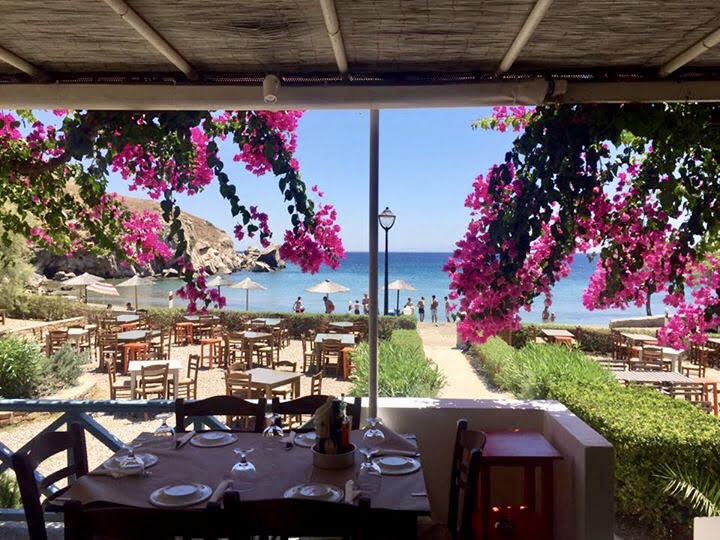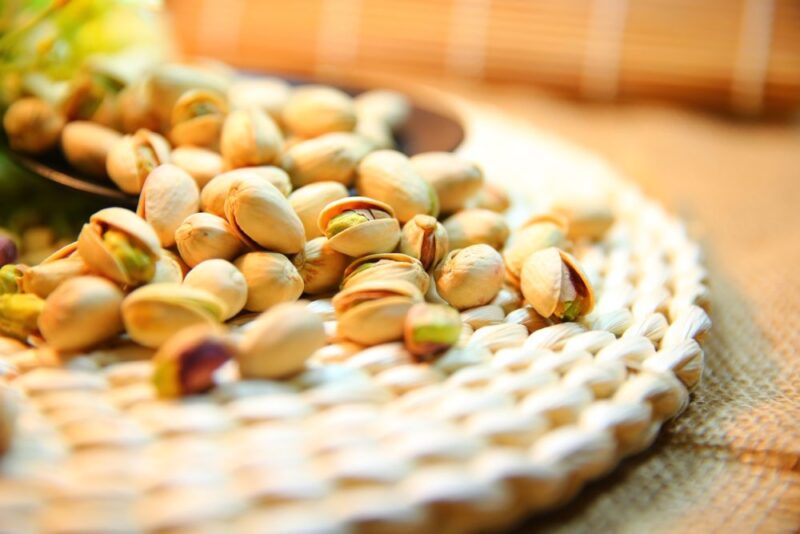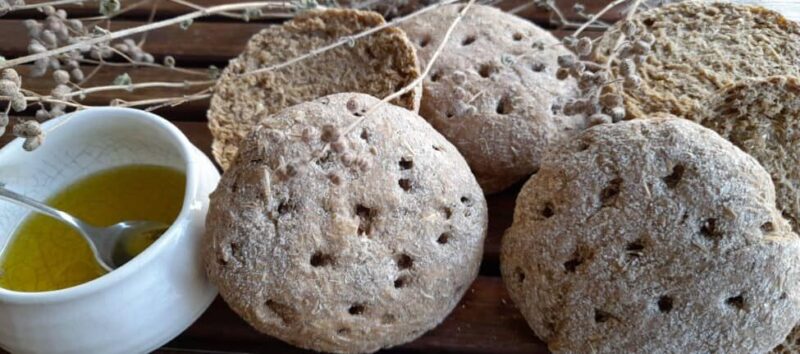Long before our modern Christmas, which is nearly identical worldwide, long before the man in red ushered us into frantic shopping sprees, the end-of-year festivities already held a significant place in Christian societies and were celebrated solemnly. Today, we invite you on a journey through the gastronomy and ancestral traditions of Christmas in Greece.
Born of rites inherited from pagan antiquity, winter solstice celebrations and, of course, festivities linked to the birth of Christ, Christmas customs in Greece have diversified, adapting to the climate, history and resources available in each region.
Nevertheless, there are commonalities. Culinary traditions that can be found in every corner of the country. I’ll mention just four:
- pork-based dishes
- Christmas cakes
- Christmas bread
- and the famous New Year’s Vassilopita.
A Christmas culinary tradition in Greece: pork dishes
The slaughter of the pig in December gave rise to great festivities. In Thessaly, they were called ” gournochara “, the joy of the pig . But the pig could never give us his point of view! In any case, this winter custom has been the inspiration for many of Greece’s Christmas recipes. Stuffed cabbage leaves(lachanodolmadès) and tigania (sautéed pork, often with peppers) in Macedonia and Thrace. Pork with celery and egg-lemon sauce in Chalkida, on the island of Evia, but also in the Aegean islands. ” Pichti“, a kind of head cheese on Samos and ” pasto “, salted pork on Sifnos. ” Poutrida me kavolè “, pork with cauliflower in Kefalonia. ” Giaprakia ” stuffed vine leaves in Rhodes…
Christmas cakes in Greece
It’s hard to imagine Christmas in Greece without the presence of traditional cakes. Prominently displayed in the middle of the living room, they are offered to guests, delight the children who come to sing “kalanda” and set the festive mood at the New Year’s Eve table. But they are also intended to distract the evil spirits that live underground, known as Kallikantzaroi. These hideous creatures spend their time gnawing on the tree that supports the earth. By offering them treats on Christmas Eve, the trunk has time to reconstitute itself overnight, and the world is saved!

During the Christmas season, Greeks are divided: there are those who prefer kourabiédès (recipe), almond shortbread sprinkled with powdered sugar, and those who swear by melomakarona, cinnamon walnut cakes dipped in honey syrup. As the controversy could not be settled, several syrup cakes were added to the range: baklava, galaktobouréko, samali, isli…
Of course, there are cakes specific to each region:
- “Amygdalota”, almond sweets from the Cyclades and Dodecanese.
- “Katades”, shortbread cakes filled with dried fruit and dusted with powdered sugar in Samos.
- Fried egg pastry served with honey and crushed walnuts in Rhodes and the southern Peloponnese.
- “Kouféto” blanched and candied almonds from Anafi, a small island in the Cyclades…
Christmas bread
On the other hand, Christmas bread or Christ bread, ” Christopsomo ” or ” Christokouloura “, is made and eaten on the eve of the feast. It is supposed to bring protection and prosperity to the family. Sometimes it contains a bean, or is filled with raisins and dried fruit. Pastry strands forming a cross, with a whole walnut in the center, always decorate the top. The four parts formed by the cross also bear decorations representing family members or the main occupation of the household. Christopsomo can be plain or enriched with sesame, cinnamon and cloves, as on Crete, or with honey and aniseed, as on Sifnos. In Mykonos and Paros, an extra loaf of bread was baked for the animals in the house. Everyone deserves a party!
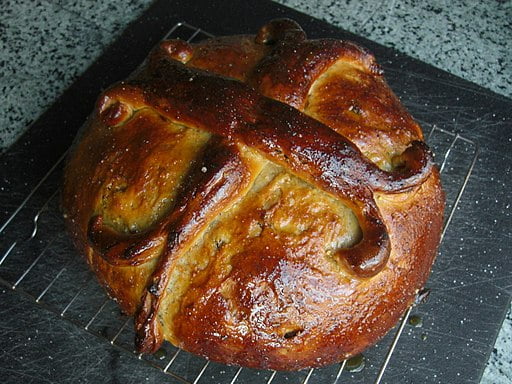
No festive season in Greece without a Vassilopita
What would the Greek New Year be without the ‘Vassilopita’? It’s a cake or brioche, sometimes even a savory pie filled with meat, as in Macedonia. It’s worth noting that it’s the eldest member of the family who solemnly cuts the shares just after the change of year. Children, but not only, eagerly search for the hidden bean, believed to bring luck and happiness throughout the year. It’s customary to make the sign of the cross three times with a knife on the Vassilopita, and in addition to each member of the household, shares are set aside for Christ, the Virgin, Santa Claus, and a piece for the poor.
In reality, Vasilopita is the cake of Aghios Vassilis (Saint Basil), the Greek Santa Claus. Traditionally, this saint brings presents to children. He doesn’t come at Christmas, but on New Year’s Day! This tradition is still followed by many Greek families!
Small superstitions and other Christmas traditions in Greece
From Christmas to Epiphany and New Year’s Eve, traditions often remain intact, and are scrupulously followed even by the very young.
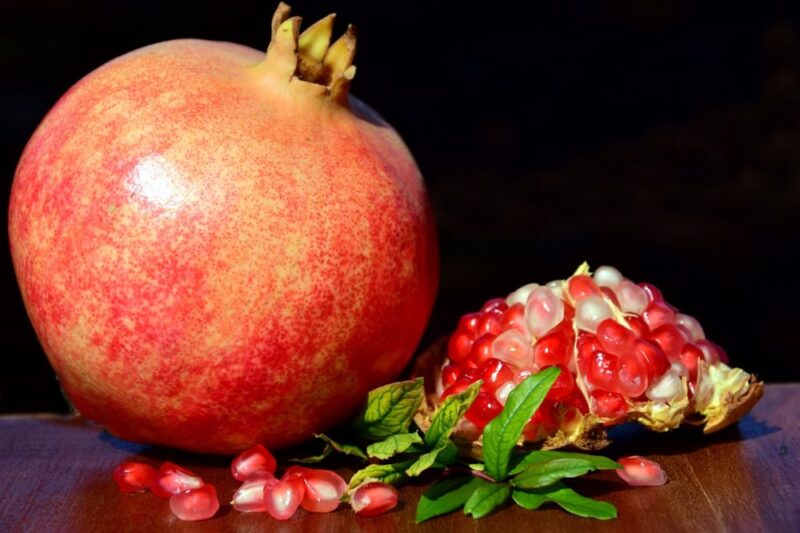
Pomegranate:
So don’t forget to stepright into the homes of friends who invited you on New Year’s Day. The “podariko“, as the custom is called, is very important indeed, as the smooth running of the year depends on it!
Finally, if you’re given a pomegranate to break, don’t be afraid to get the floor dirty. The more seeds you scatter on the ground, the more prosperous your hosts will be!
Chestnuts
Chestnuts hold a special place in Greek culture, both culinarily and traditionally. These fruits are often associated with end-of-year celebrations in Greece. Chestnuts can be featured in Christmas and New Year feasts, adding a distinctive flavor to these festive occasions. Talking about chestnuts is great, but eating them is even better… So we’re even giving you a Christmas recipe with chestnuts!
Happy Holidays!
*****
Thanks to Evi Siougari-Parmantier for writing this beautiful article!
Updated February 13, 2024

